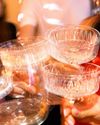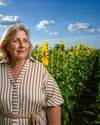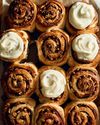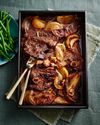
Joanne Corrigan smiles with her eyes, offers affection with gusto and when she’s worried about a friend, is quick to step in with a walk in the park, a pot of tea, an invitation to dinner, a shoulder to cry on. She’s a loyal friend, the magnificently encouraging mother of two bright-spark university students and a clinical psychologist with a Master’s degree and 20 years of successful practice under her belt. Yet until not long ago, Joanne thought she was “a bit of a loser”.
“My constant companion,” she explains, “was a part of me that said, ‘You’re not good enough. Other people do it better. What do you know? Who do you think you are?’”
That voice was so insistent, vicious and so convincing, it defeated every attempt to battle it with reason, and dragged her into dark spaces of depression, anxiety and despair.
Joanne wasn’t alone. The World Health Organisation has estimated anxiety and depression will be the number one health concern globally within a decade. They’re debilitating conditions that suck the joy from life, and kill. But there’s a new movement in psychotherapy that believes the key to defeating them might lie in a motivating force that exists alongside them in the human brain.
Professor Paul Gilbert OBE, the instigator of compassion-focused therapy, champions the power of kindness. It’s not a panacea, he admits, but it’s one of the most effective tools we have against anxiety and depression. The human impulse to kindness and compassion can be directed within to heal ourselves and beyond to heal the world.
This story is from the June 2020 edition of The Australian Women's Weekly.
Start your 7-day Magzter GOLD free trial to access thousands of curated premium stories, and 9,000+ magazines and newspapers.
Already a subscriber ? Sign In
This story is from the June 2020 edition of The Australian Women's Weekly.
Start your 7-day Magzter GOLD free trial to access thousands of curated premium stories, and 9,000+ magazines and newspapers.
Already a subscriber? Sign In

Hitting a nerve
Regulating the vagus nerve with its links to depression, anxiety, arthritis and diabetes - could aid physical and mental wellbeing.

Take me to the river
With a slew of new schedules and excursions to explore, the latest river cruises promise to give you experiences and sights you won’t see on the ocean.

The last act
When family patriarch Tom Edwards passes away, his children must come together to build his coffin in four days, otherwise they will lose their inheritance. Can they put their sibling rivalry aside?

MEET RUSSIA'S BRAVEST WOMEN
When Alexei Navalny died in a brutal Arctic prison, Vladimir Putin thought he had triumphed over his most formidable opponent. Until three courageous women - Alexei's mother, wife and daughter - took up his fight for freedom.

The wines and lines mums
Once only associated with glamorous A-listers, cocaine is now prevalent with the soccer-mum set - as likely to be imbibed at a school fundraiser as a nightclub. The Weekly looks inside this illegal, addictive, rising trend.

Jenny Liddle-Bob.Lucy McDonald.Sasha Green - Why don't you know their names?
Indigenous women are being murdered at frightening rates, their deaths often left uninvestigated and widely unreported. Here The Weekly meets families who are battling grief and desperate for solutions.

Growing happiness
Through drought flood and heartbreak, Jenny Jennr's sunflowers bloom with hope, sunshine and joy

"Thank God we make each other laugh"
A shared sense of humour has seen Aussie comedy couple Harriet Dyer and Patrick Brammall conquer the world. But what does life look like when the cameras go down:

Winter baking with apples and pears
Celebrate the season of Australian apples and pears with these sweet bakes that will keep the midwinter blues away.

Budget dinner winners
Looking for some thrifty inspiration for weeknight dinners? Try our tasty line-up of low-cost recipes that are bound to please everyone at the table.